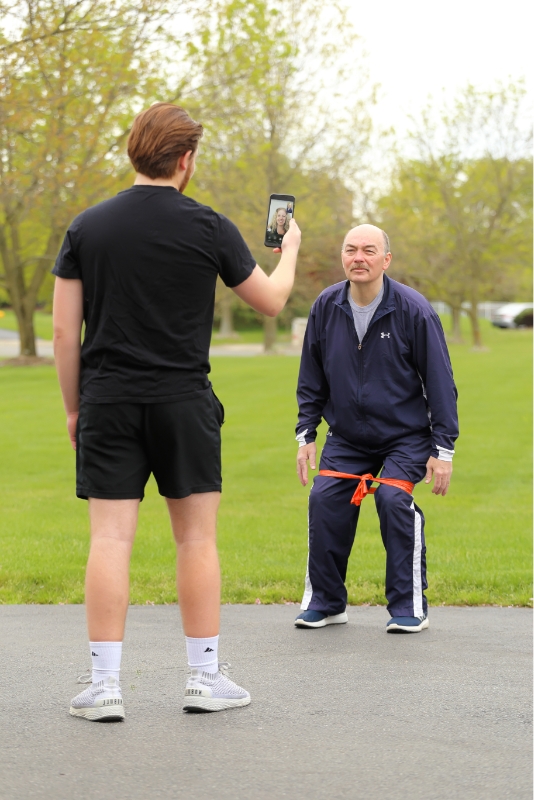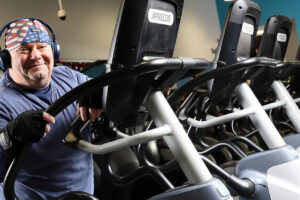On the last day of a 39-year career in New York City, Joe Santos was ready to enjoy his retirement.
But just several hours later, as he was folding laundry at his home in Freehold, his left arm and left leg began tingling and became difficult to move—and he knew he could be having a stroke.
His wife called 911 and they were quickly transported to CentraState’s emergency department, where the team stabilized his blood pressure and gave him tPA, a clot-busting medication.
“It was incredibly terrifying,” says Joe, age 60, a former marathon runner and a member of a long-distance biking team that raises funds in honor of the 9/11 firefighters. “On the day before my retirement, I lost all function on my left side and had to learn to walk again.”
After a five-day hospital stay followed by inpatient and at-home physical therapy, Joe began outpatient physical and occupational therapy three times a week at CentraState. With determination and a capable team, he was making great progress—and then in March, life changed dramatically.
A Virtual Solution

“During the first three months after a stroke, a focused program to build strength, function, and confidence is critical,” says certified stroke rehabilitation specialist Dana Abel, PT, DPT. “Joe could no longer come in for sessions due to social distancing precautions, so we got creative to continue his care.”
Occupational therapists Danielle Rizzo, OTR/L, and Stefani Sangiovanni, OT, began sending detailed emails and video links that Joe could work on at home, while Dana started biweekly physical therapy sessions via Joe’s smartphone. They took advantage of his home gym equipment, but also conducted sessions outside whenever possible with resistance bands and other tools, even using pool lounge chairs for sit-to-stand weight-bearing exercises. During each session, Dana provided advice on proper positioning and form as Joe’s son held his phone.
Working three hours a day to regain function, Joe was walking four miles on his own by early May and is working on getting back up on his bike—one of his main goals. He was able to seamlessly return to in-person therapy, and according to Dana, he’s light years ahead of where he started.
“The ability to stay connected with my therapists in this way made a huge difference for me both physically and mentally,” says Joe, who also appreciates the support of his wife, three college-age children, and many close friends. “I’ve got a real shot at a full recovery. I’m incredibly lucky and grateful.”
Learn more about rehabilitation services at CentraState at centrastate.com/rehabilitation or 866-CENTRA7 (866-236-8727).





